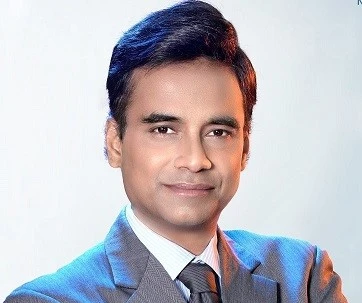
Client Admitted to Harvard Business School
By age 8, I had avoided capture by hordes of samurai, rescued a book of Aristotle’s writings for the caliph of Baghdad, and met the mummified Queen of the Nile. I was a Magic Tree House fanatic, and wherever Jack and Annie Smith, the series’ protagonists, traveled, I went with them. From my little alcove in the school library, I learned about the world across space and time.
I have always loved stories. They build identity, bridge cultures, and create legacies that are passed down generations. Growing up, stories helped me make sense of my world and my place in it. The Magic Tree House books took me to distant lands, from Japan to the ancient Middle East, and solidified my identity as a collector of stories – an adventurer of sorts.
Inspired by my childhood, when I started college a decade later, I sought a major where I could collect more stories. My first semester, I took an introductory class on academic religion, and I was hooked. That class explored stories from diverse peoples across the world, stories that explained life’s greatest questions. Convinced that I had found my niche, I majored in Religious Studies. For me, studying religion is anthropology, psychology, and sociology combined. I examine people’s beliefs across cultures, the motivations behind these beliefs, and how these beliefs uphold societies.
One of my favorite classes was Myths, Epics, and Tales from India, which I took junior year. I studied the Ramayana, a Sanskrit epic famous across the world. When I saw that the text contained over 24,000 verses, I knew I had come across the ultimate collection of stories. As I read the Ramayana, I went on adventures that reminded me of my childhood with Jack and Annie. However, I began to appreciate stories for reasons beyond the adventures they promised. Stories reveal one of the greatest truths of life: the power of perception. When I read the Magic Tree House books as a child, I took my stories at face value. When Jack and Annie evaded pirates or flew on pterodactyls, they were clear heroes fighting clear villains.
The Ramayana, however, presents complex characters, and I did not agree with the author’s perspectives on several of them. As my final class project, I presented a feminist defense of Surpanakha, a minor character in the epic, but one who I felt was illustrated unfairly. For context, Surpanakha is a demoness princess who is smitten by the Ramayana’s hero, Rama, and attempts to seduce him. When Rama tells her he is already married, he jokingly tells Surpanakha to consider his brother Lakshman instead. Earnestly, Surpanakha turns to Lakshman, who mocks her. Lakshman and Rama guffaw at Surpanakha, so she threatens them. In response, Lakshman cuts off her nose and ear. According to tradition, as Surpanakha is notorious as a wanton temptress, she deserves this punishment. She represents the antithesis of the ideal Indian woman in the time the Ramayana was written, so her example warns women to remain chaste. However, I saw Surpanakha through another lens. Surpanakha was a confident, direct woman searching for love, and she was the victim of cruelty by Rama and Lakshman. I saw her as a tragic revolutionary who defied societal norms to follow her heart, yet was disfigured by unkind, possibly misogynistic “heroes.” My defense of Surpanakha showed me the value of interpretation with stories. I read a story that vilified Surpanakha and deified the men, but I perceived their intentions exactly the opposite way. Stories are powerful, but they take on different meanings for different people.
Examining Surpanakha’s role has convinced me that as a story’s complexity increases, its interpretations increase exponentially. I believe this realization applies to the multifaceted, global world of business we live in today; what seems objective often has some level of subjectivity. When I attended Peek Weekend last June, I saw how the same fact from a case could be construed in a myriad of ways. I am specifically interested in HBS because I celebrate diverse interpretations, and I consider case studies to be the stories of business. Stories - be they beloved childhood books, ancient Indian epics, or business analyses - are the marrow of humanity. From my experience so far, the person who understands stories, understands its interpretations. The person who understands these interpretations, understands the people behind them.
Class Profile: Click here
Deadlines: Click here

Click here to review my clients’ feedbacks, including video testimonials!
Politicians have speech writers. Journalists use news editors. Famous writers and columnists have an army of professional editors. Don’t you think you also need to have one?